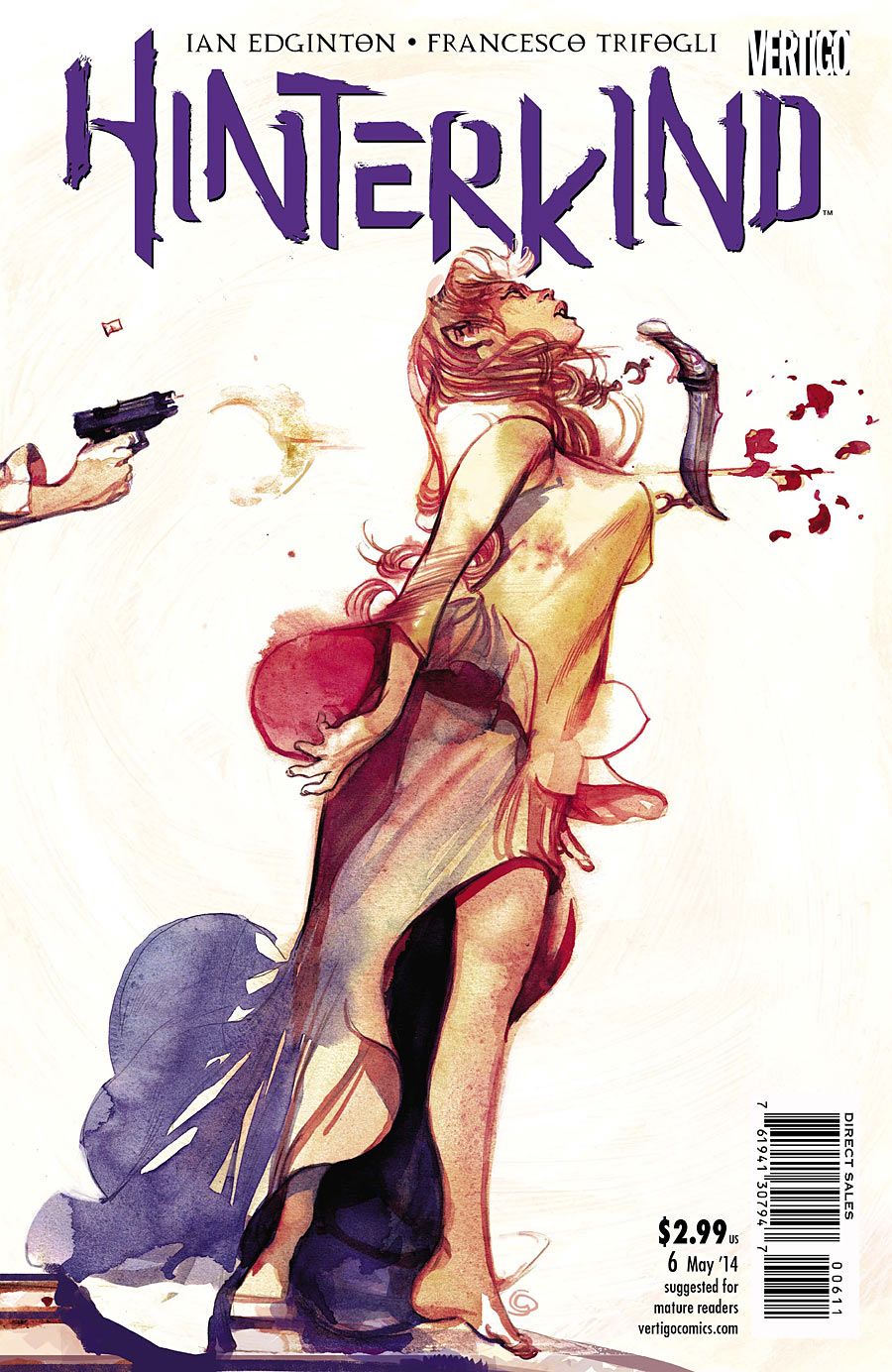With six issues under its belt, "Hinterkind" still has a wide, immersive scope and no idea how to handle it. The characters are clearly walking a lovingly imagined and richly explorable world. However, the pace and style with which they are walking it often detracts from enjoyment of the story.
Edginton and Trifogli have created a believably complex post-apocalypse. There are many factions fighting for control and scheming for survival. However, rather than competing with one another directly and consciously, each group is deeply absorbed in its own internal politics and firmly focused on its own plan. The characters in "Hinterkind" are always surprised and frustrated when they come up against another group. It's a realistic depiction of what happens after a power collapse. Every group wants to fill the power vacuum, but they don't understand the concerns of their competition - only that they are competition. And while authenticity is arguably a bunk criterion for evaluating a fantastical world, there's no denying that it also makes for a richer read.
Unfortunately, "Hinterkind" fails to capitalize on this strength. Edginton and Trifogli struggle to build their many-layered story quickly and compellingly. Many scenes only last 3-4 pages and still feel as if they're dragging. It's a shame when there's so much going on, but the pacing and unoriginal dialogue often draw my attention to the slog rather than the larger tapestry.
The movement is slow. Things happen, but they are of no real import. For instance, last issue a massive complex collapsed. It allowed the characters to escape from their captors and separated them into scattered groups. But other than that, there didn't seem to be any point to that entire interlude. Now, there doesn't always have to a point with a capital P, but in this issue neither the status quo nor the characters were significantly changed.
In some ways, I feel like this is a problem with mission. "Hinterkind" can't decide if it wants to be a simple survival story or a wider ranging, more political story. If there weren't hints of larger movements from the scenes with the Sidhe, I probably could get behind the events of the last three issues as significant. As it stands,
Trifogli's art can also be a hindrance. His uneven lines work very well in the outdoors or the dirt, but it's distracting in any spaces where I'm used to seeing clean lines. Peter's colors don't help the situation. He sticks to a dingy palette even when the environment doesn't necessitate it. I get that it's a realist's fantasyland, but even the Sidhe feel a bit pedestrian. Perhaps those beautiful tigers and eight-armed ogres in the first issue just spoiled me.
This review has been chiefly negative, but as the star rating shows, it really wasn't all bad. I still like the complexity of this universe and the way the cast interacts. "Hinterkind" is by no means unsalvageable or unpleasant, but it needs to get its pacing and focus to take it to the next level.

